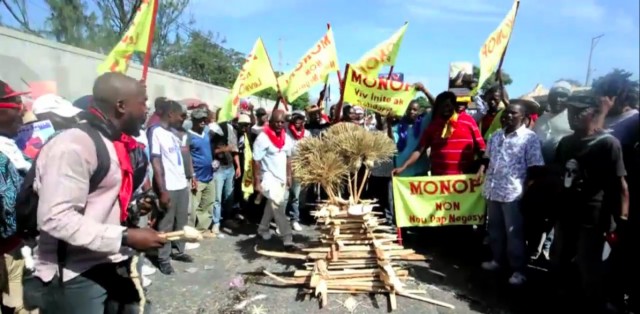
Caribbean, Haiti, Latin America: Week in Review
U.S., U.N. Call for Resolution of Deadlock in Haiti Amid Unrest
December 10, 2014 By Staff
Top Story — The U.S. government and the United Nations have urged Haitian authorities to settle a political dispute that has been years in the making, amid protests calling for long-overdue elections.
Foreign officials and Haitian protesters fear that parliament will dissolve if elections are not held by Jan. 12, when the terms of several senators and house representatives expire. The dissolution of the current political structure could send the country into political chaos, and would allow current President Michel Martelly to rule by decree.
Elections for local offices, the Chamber of Deputies and the majority of Senate seats were supposed to take place in 2011. Martelly has not called for them, instead appointing people for several of the positions.
The Chamber of Deputies passed legislation in 2013 that authorized the new elections, but the law has yet to be taken up by the country’s Senate. The stalemate has caused a battle between Martelly’s administration and members of the opposition — including six senators — who question the constitutionality of the proposed law and argue that it favors the Martelly government.
The opposition has charged Martelly with orchestrating the latest delays, so that a consequent rule by decree can grant him control of next year’s elections. Martelly’s administration, in turn, has charged its opponents with sabotaging the democratic process.
On Tuesday, news broke that a commission appointed by Martelly is calling for Prime Minister Laurent Lamothe to step down in the next week, along with the Supreme Court president and members of Haiti’s Provisional Electoral Council, according to a report secured by The Associated Press.
Protests calling for both Martelly and Lamothe to step down turned violent over the weekend, as protesters burned tires, threw rocks and stormed barricades, while police sprayed tear gas.
Headlines from the Western Hemisphere
North America
- Mexican demonstrators blocked off four main entry points along the U.S. southern border to protest their government’s new restrictions on importing used cars from the U.S., causing the U.S. State Department to issue delay warnings for several border crossing points.
- Mexico released new guidelines for its healthcare system that will improve access to palliative care in the country, a long-delayed move praised by Human Rights Watch.
Caribbean
- The Cuban government has delayed trade talks with the European Union, citing issues it had with an EU-sponsored cultural event held in the U.S.
Central America
- Guatemalan President Otto Pérez Molina said Tuesday that Guatemala, El Salvador and Honduras will together provide $5 billion to match money pledged by the U.S. to help stem the flow of migration from the three Central American countries.
- Indigenous activists from Panama are considering the use of drones to map out their territory to assess its potential to store carbon, one of many potential uses of unmanned aerial vehicles discussed at the ongoing UN climate talks in Lima.
- Costa Rican President Luis Guillermo Solís has expressed concern about increased military spending in Central America on the 66th anniversary of Costa Rica abolishing its army.
Andes
- The Peruvian government has condemned environmental group Greenpeace for a protest stunt the group pulled at the Nazca lines — a famous archeological site.
- Several oil spills in the Peruvian Amazon in recent months have caused environmental damage and health hazards for nearby indigenous communities, as the country continues to promote gas and oil extraction in the region.
- Venezuelan President Nicolás Maduro has criticized the U.S. Senate after it passed a bill — now headed to the House of Representatives — that would place sanctions on Venezuelan leaders involved in a crackdown on anti-government protests this spring.
Southern Cone
- Three more Paraguayan legislators have been accused of ties to drug traffickers, the latest officials affected by a broader inquiry sparked in October by the fatal shooting of a journalist who reported on organized crime.
- A Montevideo restaurant reportedly turned away an African-American U.S. embassy official because of her race on Friday, prompting the U.S. ambassador to Uruguay to express her outrage in an interview with the newspaper El Espectador.
- Consumer confidence in Chile has reached a five-year low, an effect of a weaker currency and falling income from copper, the country’s chief export.
Image: Screenshot, AFP
Subscribe to Today in Latin America by Email
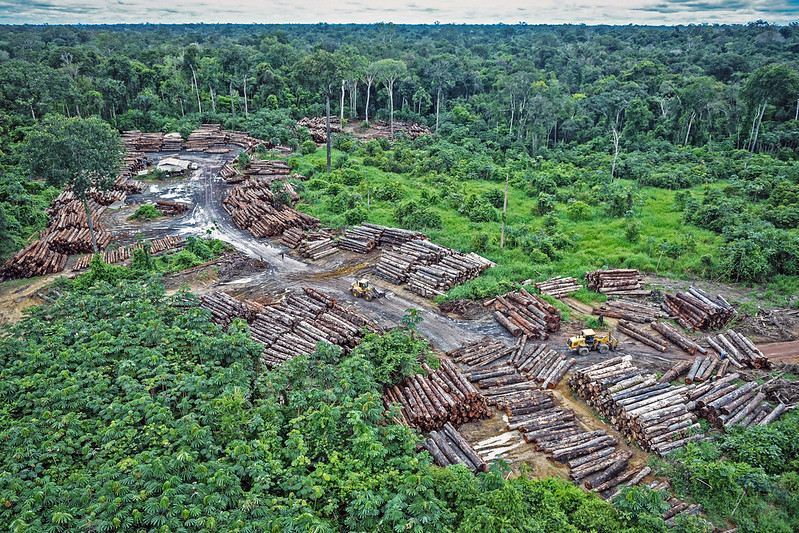
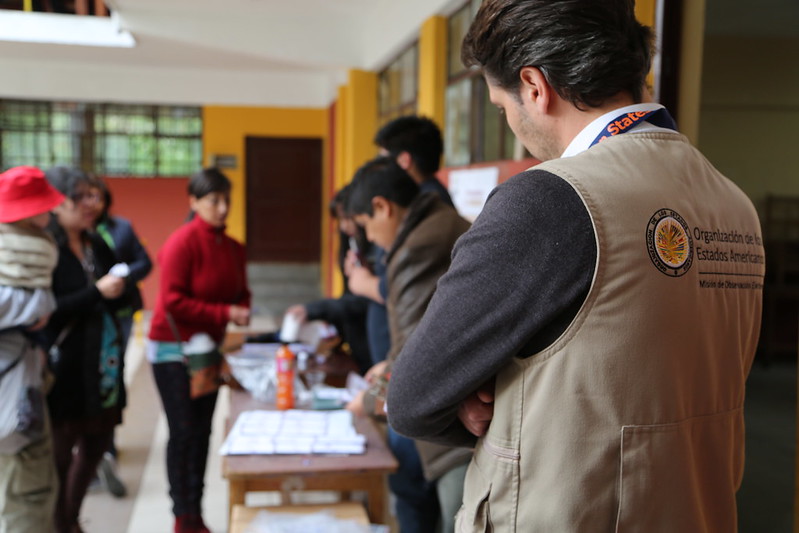
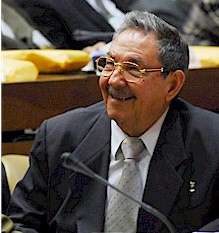
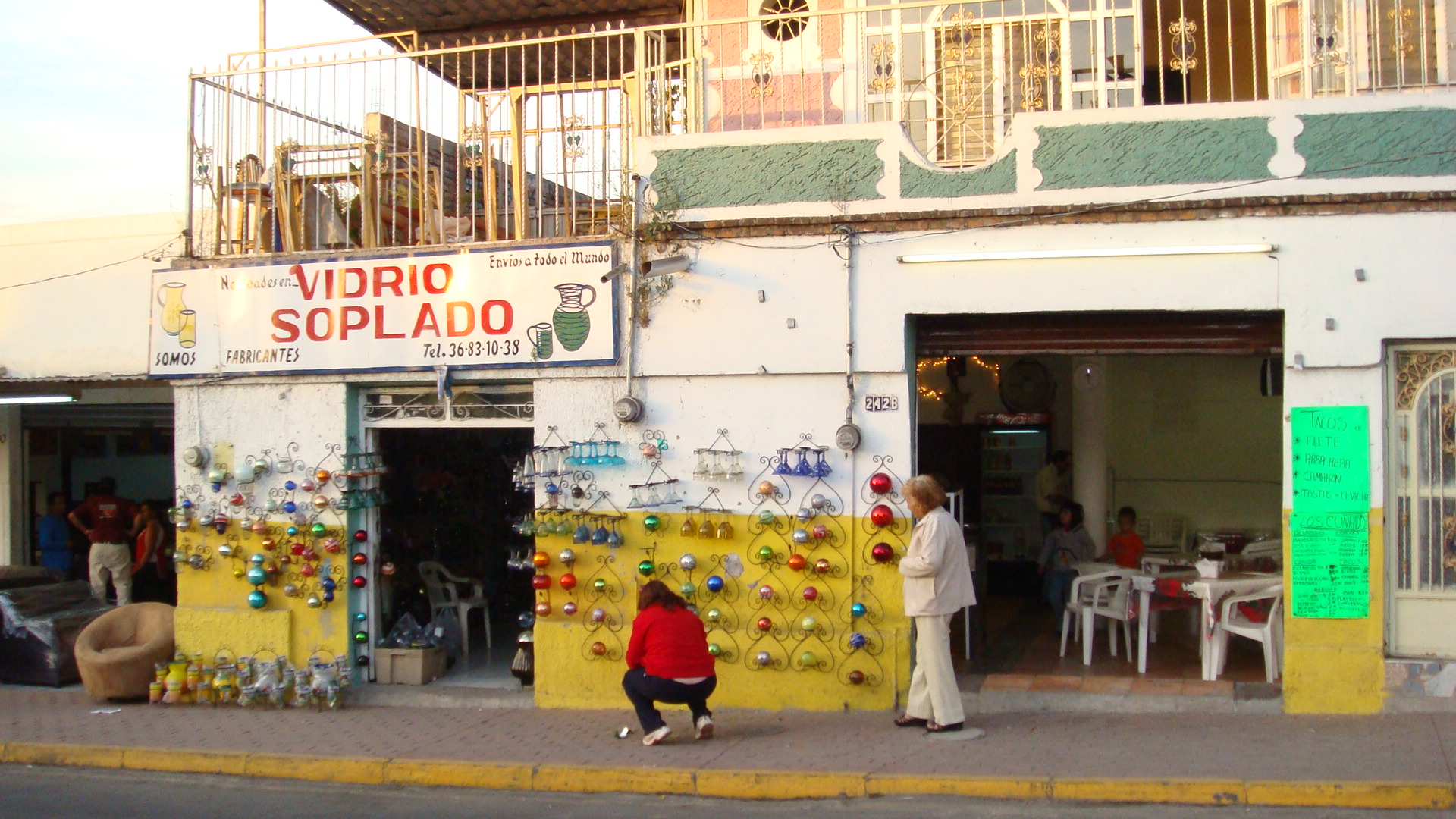
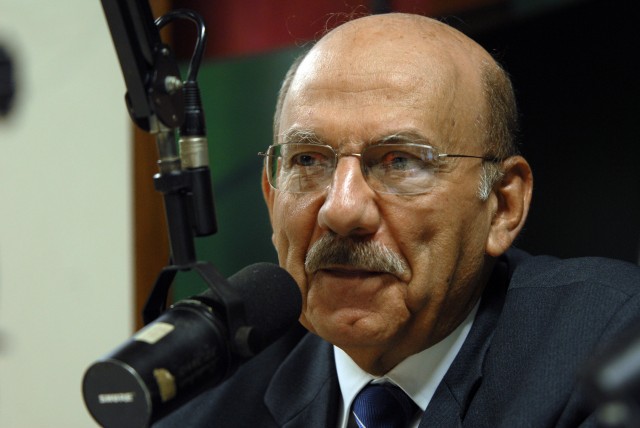
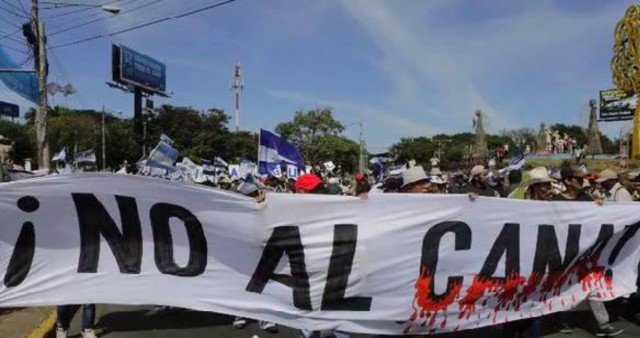
1 Comment
[…] comes in the wake of continued anti-government protests demanding elections that have been delayed since 2011. On Friday, U.N. peacekeepers were seen firing at a crowd of protesters while dispersing a […]
Comments are closed.